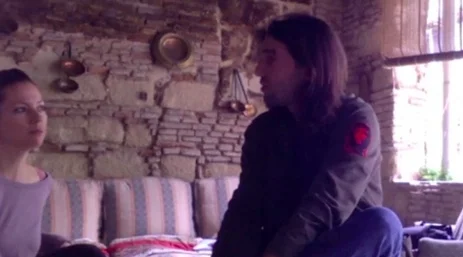I mentioned that we'd hear from Perico Navarro today. He plays cajón for Mercedes, and for lots of other people too. Paco Cepero, Miguel Poveda, Jesus Mendez. He played for Moraito Chico... For some really incredible artists.
I spoke with him last week about his life as a flamenco percussionist. You can read all about that here soon...
Anyway, after the interview we started taking about, well, bulerías.
It just always comes up.
It's Pedro's favorite palo, along with soleá por bulerías. He is from Jerez after all.
We started talking about the complexity of bulerías. You can watch a bit of our chat below...
Click right here to see a VIDEO SNIPPET
(and let me know in the comments if you want this translated into English)
And he had more to say...
Bueno aquí también ocurre una cosa. Es que digamos que lo de enumerar los tiempos y...a ver, como explicarlo...como formalizar un poco las normas de los palos eso empieza a ocurrir cuando el flamenco ya se expande un poco y se empieza a teatralizar, a trabajar con compañias con baile o con grupos. Pues entonces allí se empieza a formalizar un poco las normas de los palos para poder trabjar mas cómodos.
Ok, here also something happens. Counting... hmmm, how do I explain this? Coming up with rules about the forms, that started happening when flamenco began expanding a bit and started happening in theaters, when dance companies and groups started doing it. So from there they started coming up with a system to organized the forms in order to work more comfortably.
Para explicarlo a alguien? Para explicar… Para cerrar todo el mundo en un sitio… Es más facil si está todo matematicamente ordenado pero claro eso es digamos una parte mas moderna del flamenco.
El flamenco de aquí de Jerez, el que hacen las familias en sus casas, el que hacen en sus reuniones y fiestas, el flamenco como forma de expresión cultural de nuestro pueblo desde hace mucho tiempo, es un flamenco más anárquico, más espontáneo más libre en definitiva. Ahí no se cuentan ni enumeran los compases, la gente se deja llevar por el ritmo y el cante y eso para una persona que no está familiarizada con el flamenco puede que le cueste entenderlo. Pero si has nacido aquí, si has estado en fiestas flamencas desde niño y has escuchado flamenco casi a diario, es algo que pasa a formar parte de ti, de tu lenguaje y de tu manera de expresarte.
In order to explain to someone? To explain... For everyone to close in the same spot... It’s easier if everything is mathematically in order, but of course this is a more modern aspect of flamenco.
The flamenco from here in Jerez, the flamenco that families do in their homes, that happens at parties and get-togethers, the flamenco that has for a long time been a form of cultural expression from our town, is a flamenco for a long time, is a more anarchic flamenco, definitely more spontaneous and free. Here one doesn't count, people just follow the rhythm and the singing, and this can be difficult to understand for a person who is unfamiliar with flamenco. But if you were born here, if you have been going to flamenco parties since childhood and you've listened to flamenco almost every day, it becomes a part of you, of your language and your way of expression.
Yep.
And, I just realized something. I didn’t even ask if he had his own little pataita. But he must. Everyone does. Hmmm. Perhaps he’ll show it to us when he comes to Portland...
And, speaking of Spanish artists coming to Portland. THIS WEEKEND Ricardo will be here. And next weekend too. Yay!
Comments...
I want to know what you think. I do. How do you feel about bulerías? What do you like about it? What confuses you about it? Anything else? Let me know. Leave a comment below.
.....................................................


